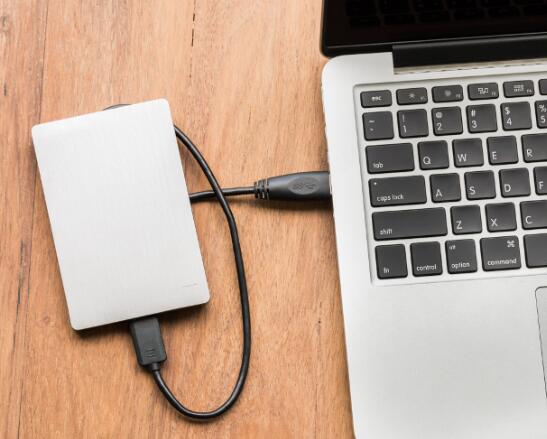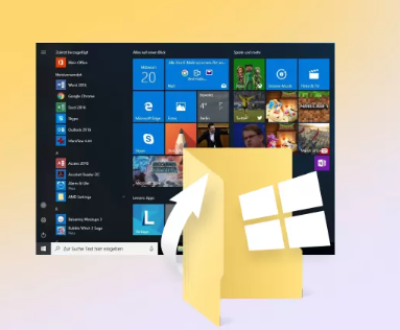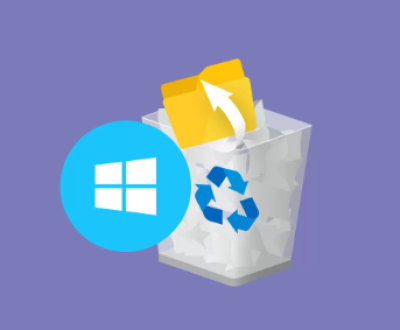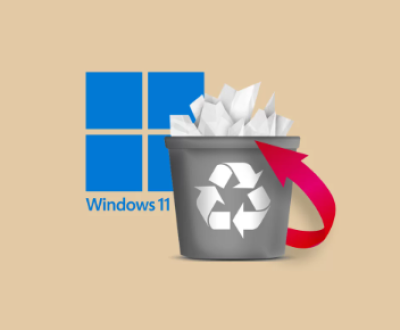Drivesavers Data Recovery Drivesavers is a prominent data recovery service provider known for its expertise in recovering data from damaged, corrupted, or failed storage devices. Whether you have lost files due to hardware malfunction, software issues, or accidental deletion, Drivesavers offers solutions tailored to recover your important data. The cost of data recovery from Drivesavers can vary widely based on several factors, which are important to understand before opting for their services.
Panda Assistant provides low-cost data recovery function and also offers free preview and trial. Its professional skills protect users’ personal privacy and security, making it very reliable.

Panda Assistant is a powerful and user-friendly data recovery software designed to help users recover lost, deleted, or corrupted files from various storage devices, including hard drives, USB drives, memory cards, and SSDs. It supports multiple file formats and can recover data from both logical and physical failures, such as accidental deletion, drive formatting, or system crashes. The software features an intuitive interface, making it accessible to users of all technical levels, while offering advanced recovery options for professionals. Panda Assistant performs quick scans to locate lost files and provides a preview option before restoring data. With its deep scan mode, it can recover data from severely damaged or formatted drives. Whether you’re facing a simple file loss or more complex data corruption, Panda Assistant provides a reliable solution for recovering important files with ease and efficiency.
1. Factors Influencing Drivesavers Data Recovery Costs
The cost of data recovery from Drivesavers is primarily influenced by the following key factors:
a. Type of Storage Device The type of device you are recovering data from plays a significant role in determining the price. Different devices require different methods and expertise to recover data. Common devices include:
Hard Drives (HDDs): The most commonly recovered devices, HDD recovery costs typically range from $300 to $1.500 depending on the severity of the damage and the size of the drive.
Solid State Drives (SSDs): Recovery from SSDs can be more expensive, often ranging from $700 to $2.500 or more. SSDs use different technology from HDDs and can be more challenging to recover, particularly if the flash memory is physically damaged.
RAID Arrays: For data recovery from RAID systems, the cost can be significantly higher, ranging from $1.000 to $5.000 or more. The complexity of the RAID setup and the number of drives involved contribute to the higher cost.
Flash Drives, SD Cards, and External Drives: Smaller storage devices like flash drives and SD cards generally have lower recovery costs, typically ranging from $200 to $900. depending on the severity of the issue.
b. Cause of Data Loss The reason for the data loss also influences pricing. Some common causes of data loss and their impact on cost include:
Mechanical Failures: If a hard drive fails due to mechanical issues like a broken spindle or head crash, it may require specialized clean room recovery. This type of recovery tends to be more expensive, especially if the damage is extensive.
Logical Failures: Data loss due to issues like corrupted file systems or accidental deletion is often less expensive to recover. It can sometimes be fixed without the need for physical repairs.
Flood or Fire Damage: If your device has suffered environmental damage, such as from fire or water, it will likely need more intensive recovery methods, increasing the cost.
Electrical Failures: Issues like a power surge or short-circuit can cause physical damage to the components, requiring more advanced repairs and increasing recovery costs.
c. Urgency and Turnaround Time Drivesavers offers expedited services, which can significantly increase the cost. If you need your data recovered urgently, you may be able to get a “same-day” or “24-hour” service, but this comes with a premium price tag. Normal recovery timelines can range from a few days to a couple of weeks, depending on the complexity of the recovery process.
d. Size of the Storage Device and Amount of Data The size of your storage device and the amount of data to be recovered also influence the cost. Larger drives or drives with more data to recover will require more time and effort, raising the price. Drivesavers typically charges based on the amount of data that needs to be recovered, and larger files may take longer to retrieve.
2. Cost Estimates for Different Recovery Scenarios
The following are typical cost ranges for different types of recovery scenarios from Drivesavers:
Basic Hard Drive Recovery: For a standard 3.5″ desktop hard drive with logical failure (e.g., file corruption or accidental deletion), the cost could range from $300 to $1.500. Mechanical issues like clicking noises would likely push this cost higher, potentially reaching $2.000 or more.
Severe Hard Drive Recovery: If the drive has suffered from head failure, severe physical damage, or issues like fire/water damage, the recovery cost can exceed $2.000. This is because the recovery requires cleanroom access and advanced data extraction techniques.
SSD Recovery: Recovering data from an SSD can be more complex due to the nature of flash memory. Expect costs ranging from $700 to $2.500 or more, depending on the type of failure and how much physical repair is necessary.
RAID Array Recovery: For large enterprise setups or RAID arrays with multiple hard drives, the cost can range from $1.000 to $5.000 or higher. The complexity of RAID data recovery—especially in cases of multiple drive failure—requires specialized tools and expertise.
SD Card or USB Flash Drive Recovery: For smaller devices like SD cards or USB drives, the cost of recovery is generally lower, typically ranging from $200 to $900. However, the price can vary based on the complexity of the recovery, including the amount of data to retrieve and the severity of damage.
Server Recovery: If you need to recover data from a server or an enterprise-level system, costs could start at $1.500 and can escalate based on the number of drives and the recovery methods required.
3. Steps Involved in the Data Recovery Process
Understanding the recovery process is essential when estimating the cost of data recovery. Drivesavers typically follows these steps:
Initial Evaluation: Once your device is received by Drivesavers, they perform an initial evaluation. This includes a diagnostic check to determine the cause of the failure and the feasibility of data recovery. There is typically no charge for this evaluation.
Quote and Agreement: After diagnosis, Drivesavers will provide you with an estimate for the cost of recovery based on the damage and the amount of work involved. If you accept the quote, they will begin the recovery process.
Data Recovery: Depending on the type of failure, data recovery can involve software repairs (for logical failures), hardware repairs (for mechanical failures), or both. This phase is typically the most expensive part of the process.
Verification: After the data has been recovered, Drivesavers will verify the integrity of the files. This step ensures that your recovered data is usable and accessible.
Return of Data: Once your data is recovered and verified, it is returned to you via your preferred method (e.g., external hard drive or cloud transfer). If you have a large amount of data, additional storage devices may be necessary.
4. How to Save on Data Recovery Costs
While data recovery can be expensive, there are a few ways to reduce costs:
a. Back Up Regularly The best way to avoid costly data recovery is to regularly back up your important data. Using cloud storage or external hard drives can help prevent catastrophic data loss.
b. Act Quickly The longer you wait to begin data recovery, the more likely the damage is to worsen, potentially increasing costs. If you notice a problem with your device, consider stopping usage immediately and contacting a data recovery service as soon as possible.
c. Choose a Standard Recovery Service If time is not a critical factor, opting for a standard recovery service (rather than expedited services) can save money.
d. Shop Around While Drivesavers is known for its expertise, it’s always worth exploring other data recovery companies to compare prices and services. Make sure to choose a reputable provider with a proven track record.
5. Additional Costs and Considerations
In addition to the basic recovery costs, there may be other fees to consider:
Shipping Fees: If you are shipping your device to Drivesavers, shipping costs will be added to the total cost. It’s a good idea to inquire about shipping options beforehand.
Additional Storage Costs: If the recovered data exceeds the storage limits of your current storage device, Drivesavers may need to supply an external hard drive or other storage media, which will incur additional costs.
Evaluation Fees: While most data recovery services, including Drivesavers, provide free evaluation, there are some instances where an evaluation fee may apply, especially if you decline the recovery service.
The cost of data recovery from Drivesavers can range significantly based on the type of device, the cause of failure, and the urgency of the service. Understanding the key factors that affect pricing can help you make an informed decision when it comes to recovering your valuable data. Whether you’re dealing with a personal hard drive or a complex RAID system, Drivesavers offers a wide range of services to meet your needs. Always remember to take preventive measures such as regular backups to minimize the chances of needing data recovery in the first place.
About us and this blog
Panda Assistant is built on the latest data recovery algorithms, ensuring that no file is too damaged, too lost, or too corrupted to be recovered.
Request a free quote
We believe that data recovery shouldn’t be a daunting task. That’s why we’ve designed Panda Assistant to be as easy to use as it is powerful. With a few clicks, you can initiate a scan, preview recoverable files, and restore your data all within a matter of minutes.

 Try lt Free
Try lt Free Recovery success rate of up to
Recovery success rate of up to









